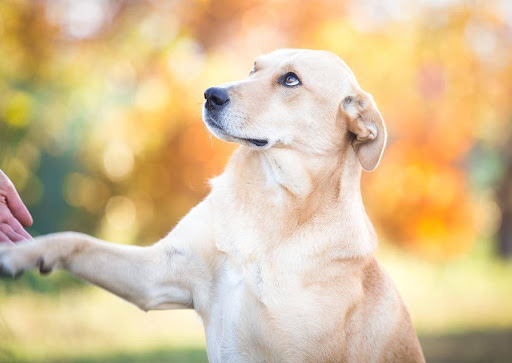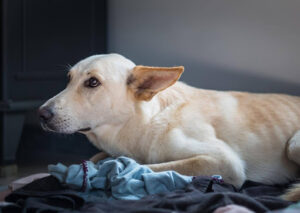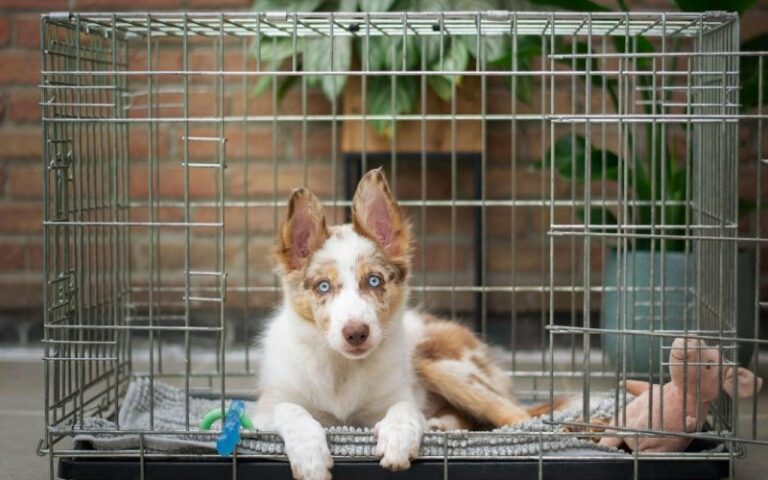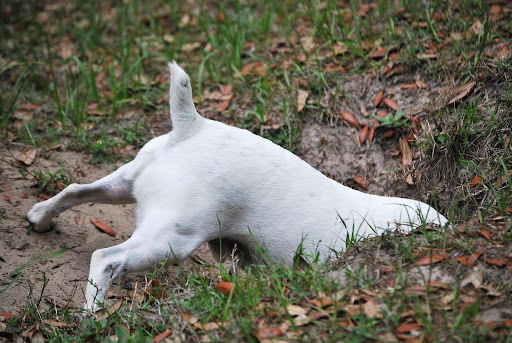How To Help a Rescue Dog Acclimate Into Your Home
Bringing a rescue dog into your home is not just a kind act, it also has its own challenges. Are you eager to make your home a cozy place for your new pet but don’t know where to start? Wondering how to make it easy for both you and your new dog? Here’s what you should do:
Begin by preparing your home with dog essentials. Dog-proof your space and create a safe area. Introduce a routine gently, minimize overwhelm, and focus on building trust. Then gradually integrate them into the family, address their health and dietary needs & engage them in physical and mental exercises.
But, there’s more to this loving journey. Every rescue dog is different, with their own needs and funny habits. In this article, we will talk more about how to help your new furry friend settle in, making sure it’s a happy and healthy change for you and the dog.
Preparing Your Home for a Rescue Dog
When you bring your rescue dog home – it’s important to be prepared and considerate of their potential anxiety. Before you bring your new dog friend home, have all the things they need and make your home dog-safe. Also, make a special place for them that has different options and makes them feel safe and relaxed. Think of it as setting the stage for a new chapter in both your lives, where understanding and patience are key.
1. Essentials for Your Dog
- A Comfortable Bed: Get a bed that’s big enough for your dog. And they should be able to stretch out and relax in it.
- Toys for Engagement: Give them different toys – like chew toys and puzzles to keep them busy and sharp.
- Food and Water Bowls: Opt for sturdy, easy-to-clean bowls for their daily meals and hydration.
- A Leash and Collar: These are must-haves for safe walks. Make sure they fit your dog well and are comfy.
- Identification Tag: Attach an ID tag to their collar with your contact information for safety.
2. Dog-Proofing Your Home
- Secure Hazardous Items: Keep things like medicine and chemicals where your dog can’t get them. And also, small objects they might swallow should be out of reach.
- Manage Wires and Cords: Conceal or secure electrical cords to prevent chewing or tripping hazards.
- Restrict Access to Certain Areas: Use baby gates or close the doors to limit access to rooms that might be unsafe.
- Remove Toxic Plants: Make sure all plants in your house and yard are safe for dogs.
- Create a Safe Outdoor Space: If you have a yard – check the fences for gaps. Also, get rid of anything outside that could be dangerous for your dog.
3. Creating a Comfortable Space
- Choose a Quiet Area: Pick a calm spot in your house. It should be away from busy areas.
- Include Familiar Items: If possible, include a blanket or toy from their previous shelter to provide comfort.
- Ensure Accessibility: The space should be easy for your dog to get to and this is especially important for older dogs or those who aren’t very mobile.
- Consider a Crate: If your dog likes crates, it can be a safe spot for them.
- Add a Personal Touch: Leave an item of your clothing with them. It helps them get used to your smell.
Tips To Acclimate a Rescue Dog
Helping your rescue dog get used to their new home is important. It makes them happy and helps you both live together peacefully. Here are some key tips to make your dog feel at home and relaxed.
1. Let Them Settle
The first few days with your rescue dog are extremely important for them to adjust. It’s essential to let them settle at their own pace. And don’t give them too much attention or force them to interact. Remember – your new furry friend may need time to process the significant changes in their environment. They might be hesitant or anxious initially, which is perfectly normal. Watch for their signals and let them come to you when they’re ready.
2. Minimize Overwhelming
It’s important to make a quiet & safe space for your rescue dog, this helps them feel secure in their new home. To keep things peaceful, try these ideas:
- Limit Visitors: Keep the number of new people your dog meets to a minimum.
- Consistent Routine: Make a regular schedule for their meals, walks, and sleep.
- Controlled Introductions: Slowly show them around different parts of your house.
- Quiet Time: Make sure they have times when it’s quiet so they can relax.
- Familiar Sounds: Playing soft music or having the TV on quietly can make them feel more at home.
3. Build Trust
Building trust with a rescue dog is all about gentle actions. Start with small gestures like sitting on the floor at their level to appear less intimidating. Hand them treats to get them to come closer. And talk in a calm, kind voice to show you’re friendly. It’s also good to do quiet activities with them – like softly brushing or petting them when they’re open to it.
4. Integrating Into the Family
When it comes to family members interacting with the new dog – patience and understanding are key. Everyone should approach the dog calmly and not force any interaction. Wait for the dog to come to you, this way, you help the dog feel safe & start trusting you.
Likewise, a smooth introduction of your rescue dog to existing pets is also essential for a harmonious household. Pets need time to get used to new animals in the house. Follow this guide to help them get along:
- Start with Scent: Before they meet, let them have each other’s blankets or toys. This way, they can get used to each other’s smell.
- Neutral Territory: First meet in a place that’s not inside your home. This stops them from acting territorial.
- Leashed Introduction: Keep them on leashes when they first meet.
- Observe Body Language: Look out for any signs they’re stressed or angry. And if you see this, keep them apart.
- Gradual Interaction: Slowly let them spend more time together, but always watch them. This helps them get comfortable with each other.
5. Home Train Your New Pet
Furthermore, it’s also often difficult to determine a dog’s previous living conditions and habits. They might be used to sleeping on a bed or a sofa. And, they might not be fully house-trained, even if they’re grown-ups – so they might require assistance in this regard. And if you want to teach them new habits, use treats, kind words & toys, these help train them the way you’d like.
6. Health and Dietary Requirements
Rescue dogs may have specific health and eating needs, just like all dogs. And these need to be looked after to help them settle into a new home. Here’s what to consider:
- Allergies and Sensitivities: Many dogs have allergies to certain foods or environmental factors so watch for signs of allergies such as itching, digestive issues, or skin problems.
- Weight Management: It’s important to keep your dog at a healthy weight. Being overweight can cause health problems.
- Regular Vet Check-ups: Stay on top of their shots and regular check-ups at the vet.
- Dietary Needs: Give them a well-balanced diet. Some rescue dogs might need extra food to gain weight – while others might need less to lose weight. Here are some tips for feeding rescue dogs:
- Choose good-quality dog food that’s right for their needs.
- Incorporate lean proteins (to provide essential amino acids), healthy fats & carbohydrates in their diet.
- Don’t give them foods that are bad for dogs, like chocolate, grapes, and onions.
- Always have fresh water available.
- Talk to a vet for a specific diet plan if your dog has health problems.
7. Daily Physical and Mental Exercise
Daily Physical and Mental ExerciseWhen a dog transitions to a new environment, it can be a stressful and overwhelming experience. Both body and brain exercises are really helpful. They reduce stress, boost confidence & help your dog bond with you. Here’s a table categorizing activities based on energy levels:
| Energy Level | Activities |
| Low | Short walks, gentle play with soft toys, puzzle feeders |
| Medium | Regular walks, fetch games, basic agility exercises |
| High | Long walks or runs, advanced agility training, interactive play sessions |
Understand the Behavioral Issues of Your Rescue Dog
When welcoming a rescue dog into your home, it’s vital to acknowledge that they come with a history. Their experiences – like where they lived before, affect how they act. And you might not fully understand their behavior in your home.
For Example: A dog that has experienced neglect may exhibit signs of anxiety or fearfulness. If they have separation anxiety, try leaving them alone for short periods and slowly increase it.
Other behavioral issues in rescue dogs include aggression, hyperactivity, destructive behavior, phobias, and excessive barking. It’s important to observe and understand these behaviors. This helps you know how to take care of them. If you need to, get advice from a dog behavior expert.
What’s the Typical Settling-In Period for a Rescue Dog?
Knowing the 3-3-3 Rule helps you understand how a rescue dog gets used to a new home. And, this rule shows the stages of their adjustment:
- First 3 Days: The dog might feel really overwhelmed. They often act shy or anxious – this is because they’re getting used to their new place and your family.
- First 3 Weeks: The dog starts to settle in, becoming more comfortable and showing their true personality.
- First 3 Months: The dog fully settles into their new home. They build trust and form a strong bond with their family.
It’s important to know that this is just a basic guide. Each dog is different, so their time to adjust can vary. Being patient and giving them regular care is important to help them settle in.
Conclusion
Bringing a rescue dog into your home is a journey full of love, patience, and understanding. We’ve looked at how to prepare your home, make a comfy space & start a routine. All these steps are important to help your new dog adjust. Remember – every rescue dog is special and their past affects how they behave. It’s our responsibility as compassionate dog enthusiasts to be patient, observant, and nurturing. The bond you’ll form with your rescue dog is incomparably rewarding, enriching both your lives.
So, open your heart to this amazing experience. The love and trust you give to your dog will come back to you many times over.
Thinking about bringing a rescue dog into your home? Reach out to us for help!
205-402-8448
www.olk9alabama.dog







